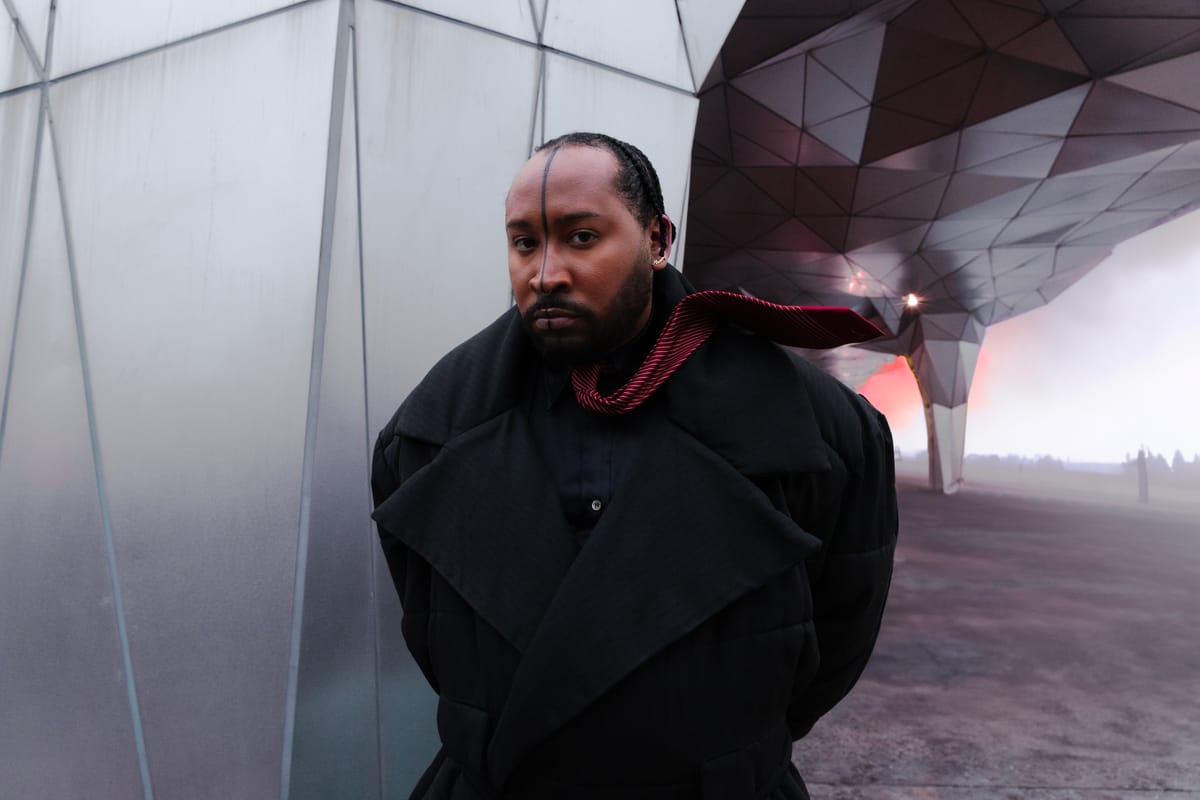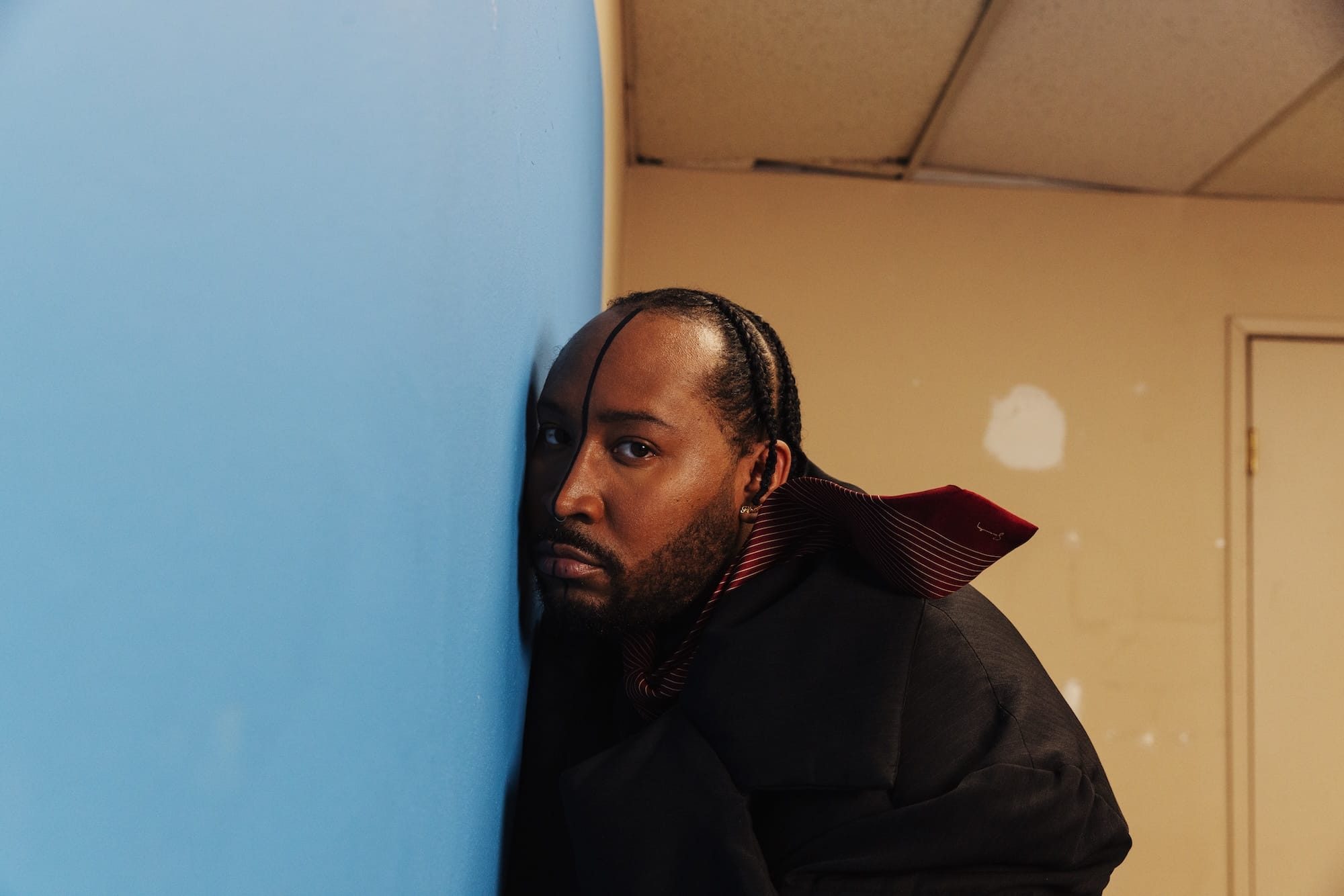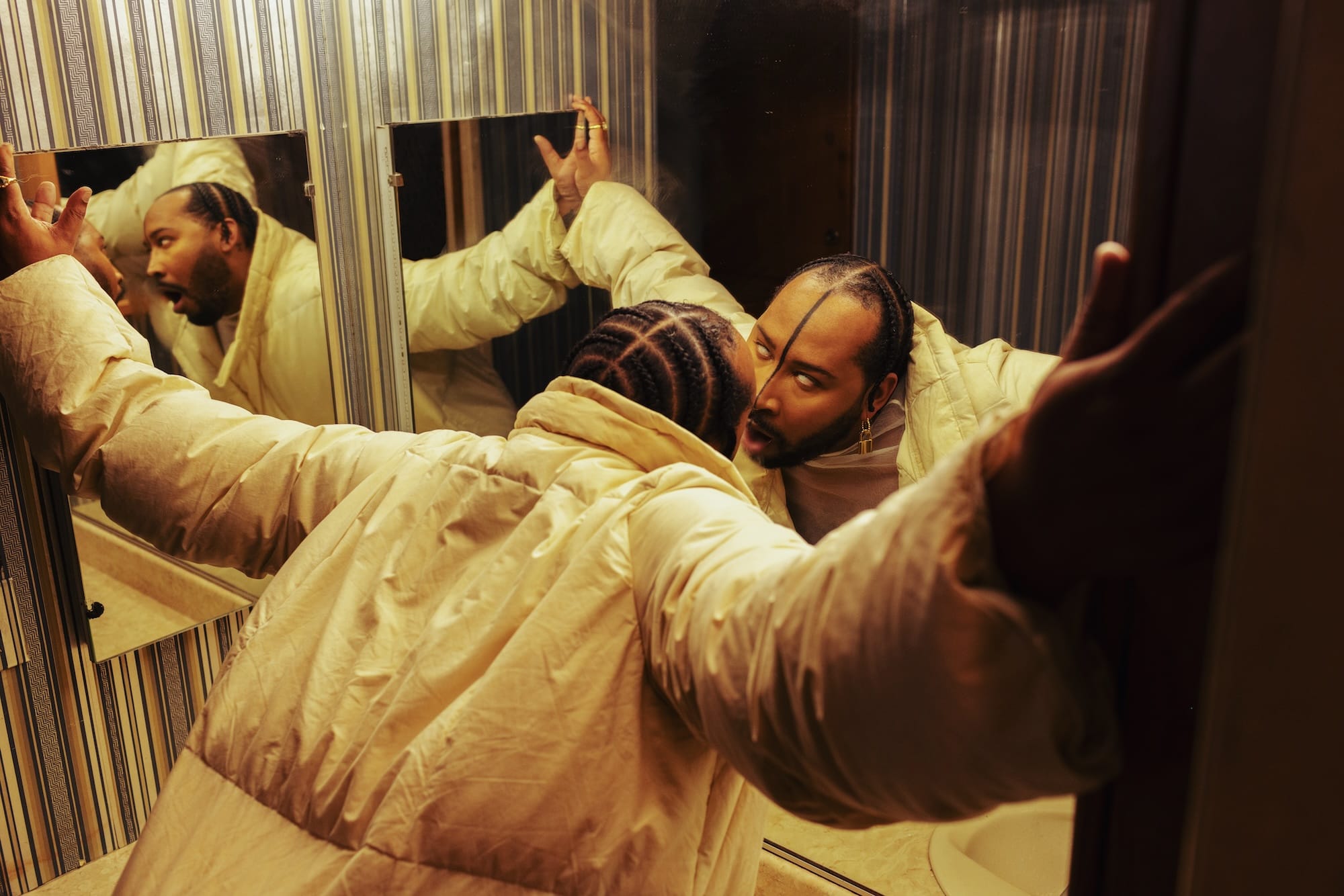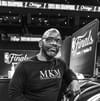
At one point in his life, Bartees Leon Cox Jr. thought he wanted to be a pro athlete. Like many kids who grow up in Oklahoma and have any modicum of athletic ability, that seemed to be the logical mindset.
However, unlike other young dreamers, his goal had nothing to do with a passion for the game. While Cox was a three-sport standout at Mustang High and faced off against future college and pro stars like Ryan Broyles, Sam Bradford, Gerald McCoy and Blake Griffin, he saw athletics as a way to get what he prized most—freedom.
“I don’t think I knew that at the time because I was really good at (sports),” Cox says. “I thought, ‘This might be my ticket out of here. If I’m good at this, maybe I can at least move.’ That was kind of what I was thinking.”
It took Cox some time before he found that ultimate prize, though it didn’t come via the football field or basketball court. He found it in the one place he knew he should have been looking all along: his music.
Cox, who performs under the name Bartees Strange, is a singer, songwriter and guitar player. He describes his music as a melting pot of almost every genre and style imaginable.
“I kind of make stuff that’s like a lot of rock, a lot of funk, a lot of hip-hop, a lot of jazz, a lot of country—and it’s just kind of rolled up into this thing that is me now,” he says. “I feel like I tell people all the time, if you don’t like the first song, you will probably like the second song or the third one. There’s something in there for everybody.”
At 36 years old, Cox is watching his star rise in the entertainment industry. In the past few years he’s toured with Phoebe Bridgers, Lucy Dacus, Metric, Boygenius and The National; this year alone, he’s appeared on NPR’s “Tiny Desk Concerts,” “Jimmy Kimmel Live” and “Everybody’s Live with John Mulaney” on Netflix. And this August he’ll be sharing his sound at nearly a dozen stops across Europe from Budapest to Berlin to London.
Cox may be living a rock star’s life. But that was never his plan.
“I’ve always been in love with music,” he says. “My mom (Donna Mitchell-Cox) is a singer and she taught voice at the University of Oklahoma, and she was also a choir director and a praise team leader, and I grew up following her around and really being amazed by what music can do. But I think I was probably 14 or 15 when I kind of started developing my own sense of music and what I liked. Ever since then, I kind of wanted to be a part of music.”
Cox wasn’t dreaming about headlining a solo tour or fronting a band, though; at that time, he envisioned himself probably just joining a choir whenever he went off to college.
“It wasn’t until I was probably 18 or 19 where I was like, ‘I’m kind of good at this,’” Cox says. “I could always sing. But because I grew up with so many fully trained musicians, I was not interested in going down that path. But once I kind of found rock music and things like that, I was like, ‘This is something I can make. I want to do this.’”
The pivotal moment may have come during Cox’s senior year of high school while playing guitar for a local band. The group was invited to compete in a battle of bands, and his family was there watching.
“It was the first time I think I ever saw my dad (Bartees Cox Sr.) cry,” Cox recalls. “I was like, ‘I might be good at this.’”
He didn’t ask his father, who was in the Air Force, what brought him to tears. But he had a pretty good idea where the emotions came from.
“I looked free up there. I think that’s what he always wanted for us, was freedom,” Cox says. “When I was growing up in Mustang, I was lucky that I was a great athlete and people would kind of give me a break. I definitely had a lot of fear around where I could be at night, who I was around, just classic stuff growing up Black out there. I think him watching me really express myself and be free … I was happy.”
Cox admitted he didn’t fit the stereotypical mold of a young, Black kid when it came to his musical taste. He chose the name Bartees Strange because growing up in a Black church, “Everyone thought I was strange.
“Which can mean anything. It doesn’t mean you’re a bad person. It’s just like, ‘He’s in his own world over there.’ I’ve always been that way. I think people always expected me to be one way, and then they get to know me and they’re like, ‘This dude’s on some other s***.’ I was definitely the only kid on the AAU basketball team who liked Fleetwood Mac.”
“It’s like, the thing about you that you think is the ugly thing or the thing that nobody wants, that might be the thing that you need to embrace.” –Bartees Cox
But when he is on stage with a vintage hollowbody Gibson in his hands, he’s able to be himself. It was something he sought out in other artists as well.

“I just kind of grew up with this picture of a rock band being like Eddie Hazel, Bootsy Collins, Garry ‘Diaperman’ Shider, George Clinton, the Gap Band, the Brothers Johnson and Brides of Funkenstein,” Cox says. “All these bands that they were so free in a time when my dad didn’t feel free. Those bands were my dad’s freedom. I think that when I started going into music, that was my backdrop. This is a place where Black people can just go do whatever you want. I think I wanted that so bad when I was in high school, college, and then definitely into my 20s when I started to feel the walls of life kind of form around me.”
Despite that, it would be another decade before he made his full immersion into the music world. After graduating from the University of Oklahoma, he took a job in Washington, D.C., working as the press secretary for the Federal Communications Commission.
“I was trying to find someone that I wanted to be like, and I couldn’t find anyone,” Cox says. “I don’t want to be any of these people. I respect them and I respect that they were willing to do this with their lives, but I want to do something else. And I would pacify that need by playing in bands on the side.”
Cox knew where he belonged, and it wasn’t in an office, clocking in and out while working a 9-to-5. He knew deep down his journey had to go in a different direction.
“When I got there, I realized this isn’t my path. I don’t like this,” Cox says. “Over the course of my life, it was a lot of getting somewhere I thought I needed to be, and then coming back to music. Getting somewhere I thought I needed to be and coming back to music. And then in my late 20s, I came back to music and stayed. That’s kind of where I’ve been.”
He put out his first studio album (Live Forever) in 2020. The first single to be released was “Mustang.” One reviewer described the song as “something of an indie rock anthem wrapped up in mesmerizing synths, catchy riffs and bombastic vocals.”

Because the album came out during the COVID pandemic, he shot the accompanying video in his Washington, D.C., apartment. That same year, he released Say Goodbye to Pretty Boy, which gave him the confidence to quit his job.
“It was really scary because I loved it so much,” Cox says. “I don’t think I’ve ever loved anything like this. I’ve never gotten to do the thing I wanted to do. And so now I get to, and it felt so exciting and cool, but I also, in the back of my mind, I’m scared.”
That was five years ago. Cox has produced two more studio albums since then, including Horror, which was released in February.
According to Cox, creating Horror ($26.99 on vinyl) opened a boarded-up door to a closet filled with everything from his life that he didn’t know how to address.
“The world can be a terrifying place, and for a young, queer, Black person in rural America, that terror can be visceral,” Cox says. “Horror is an album about facing those fears and growing to become someone to be feared.”
After its release, Cox began a 21-stop tour to promote the distinctive album. In his youth he could never have envisioned performing in front of sold-out crowds in London, hosting a concert at The Getty Center in L.A. or putting out a fourth album to critical acclaim.
“The one thing I wanted in my whole life when I was a kid was to get out of Oklahoma,” Cox says. “I was like, ‘I’ve got to get out of here because this place is horrible and there's nothing happening.’ Then, as soon as I left, the thing that made me different was because I was from Oklahoma and no one else was. And that’s something that stuck with me. It’s like the thing about you that you think is the ugly thing or the thing that nobody wants, that might be the thing that you need to embrace.”

